Mellon PHLs 2024-2025
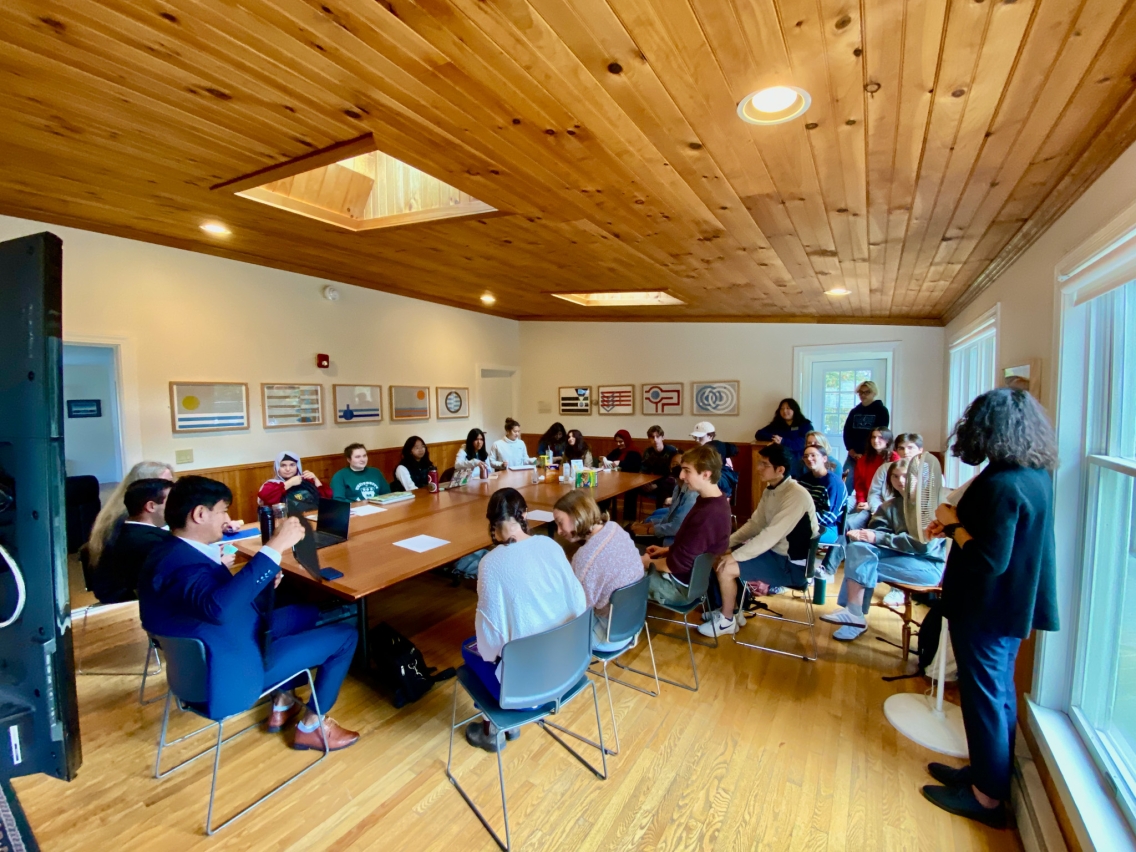
Public Humanities Labs (PHLs) are the Axinn Center for the Humanities’ most recent innovation to increase enrollments in the humanities through experiential and interventionist education. Established in 2021 and recognized in 2023 by the National Humanities Alliance as an exemplary model for building collegiate public humanities, Public Humanities Labs provide deep investigations into core humanities topics, such as justice, equity, and narrative storytelling, with familiar disciplinary frameworks like history, literature, and philosophy. Through funding from the Mellon Humanities for All Times grant, Middlebury College will provide thirty new Public Humanities Labs. Their innovative structure allows them to intentionally combine hands-on, practical and applied educational tools, involving extensive student research and skill-set building, with the public dissemination of the results, via such means as presentations, websites, and reports. By linking humanistic classroom-learning with a public-facing component, these PHLs will allow students to research and learn about migrant justice and make informed and meaningful interventions.
In 2024-25, the following faculty are teaching Mellon Public Humanities Labs: Fulya Pinar (Department of Anthropology), Dima Ayoub (Department of Arabic), Stefano Mula (Department of Italian), and Khyree Davis (Black Studies Program), Ian Barrow (Department of History), Gloria Gonalez-Zenteno (Luso-Hispanic Studies Program), Yumna Siddiqi (Department of English), Natalie Chwalisz (Department of Political Science), Erin Sassin (Department of History of Art & Architecture), and Viola Huang (Black Studies Program). For more information, please scroll below.
ANTH 0274 Global Migration
Students in Professor Fulya Pınar’s “Global Migration” PHL (Anthropology) met with legal counselors and an Afghan colleague from the Association of Africans Living in Vermont (AALV). They discussed the legal challenges of immigration law in the US as well as asylum seekers’ experiences in Vermont, particularly family reunification and resettlement. Students were eager to get involved with AALV. They asked numerous questions focused on professional training in immigration law, and connected the work of AALV to their own personal or familial experiences with immigration.
Rani, a third-year student majoring in International and Global Studies, explained that for her, the course connected to her own family history of migrating from Nepal. She added that what made the Global Migration PHL different from other courses she had taken was the way in which Prof. Pınar brought in outside community resources. “Helping to connect the Middlebury community with the College is something that I haven’t seen other courses do…also with this course, [Prof. Pınar] has been sure to put a really big emphasis on how migrants have been criminalized and dehumanized, and she is helping us to understand that migrants are not just statistics…it’s the whole reason I came to a liberal arts experience…to expand my worldview a bit more. The more we try to separate everything into categories the further away we get from global harmony.”
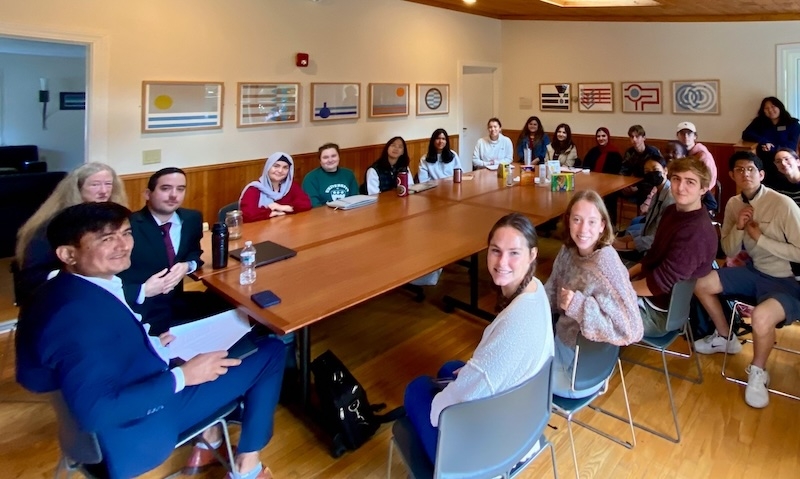
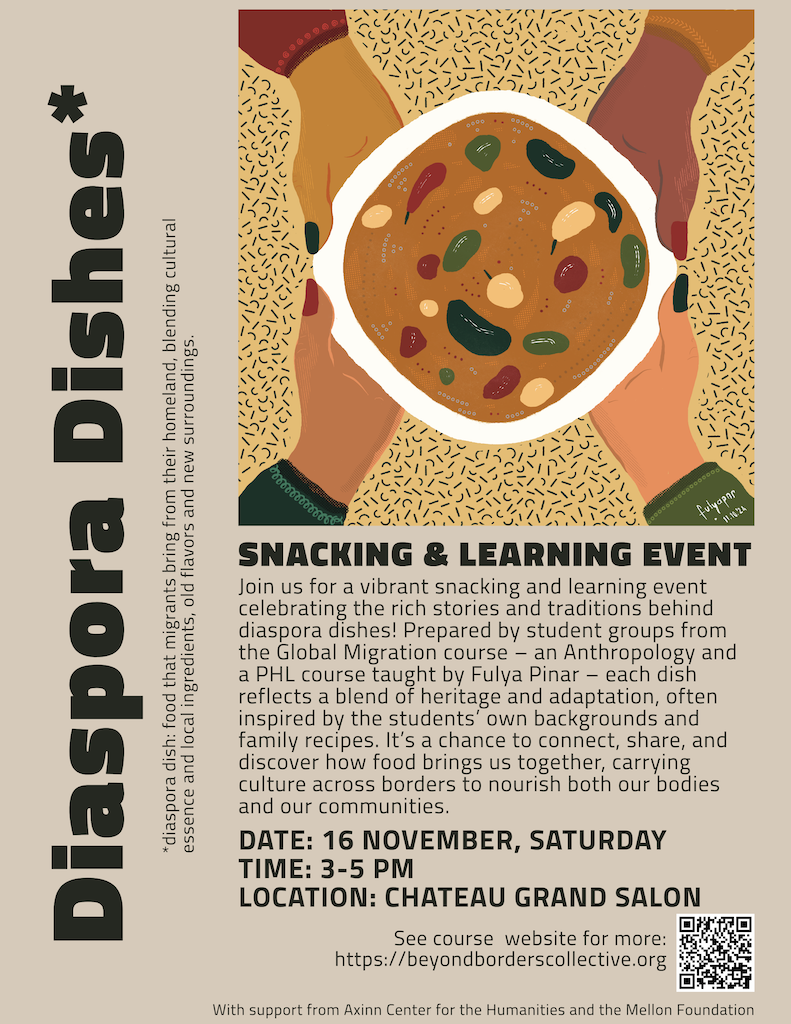
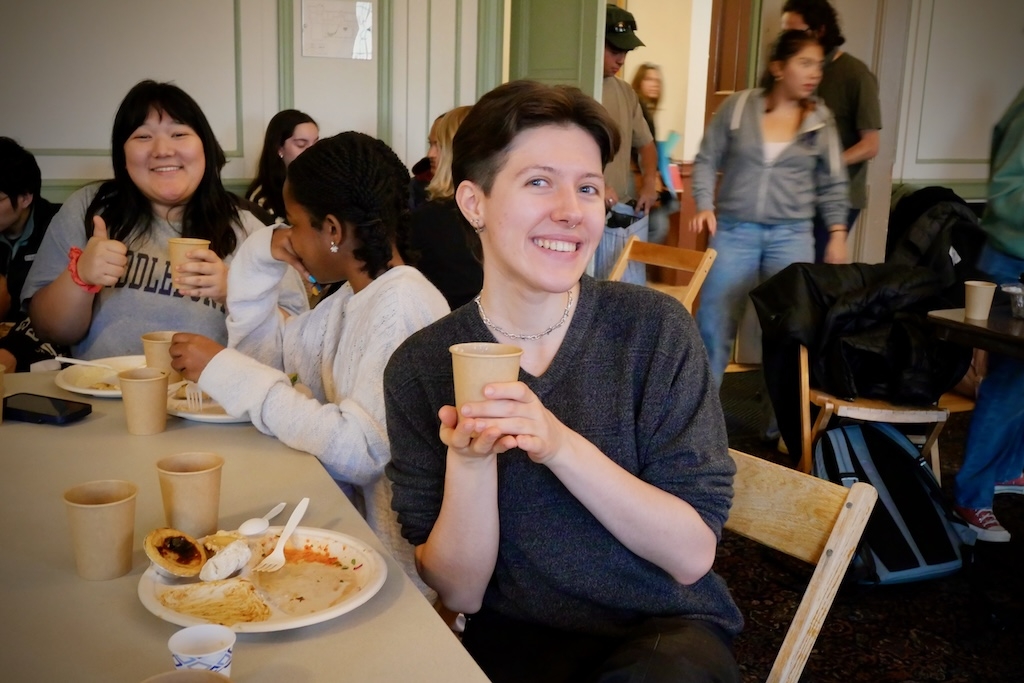
ARBC 0219 Modern Palestinian Literature
Students in Professor Dima Ayoub’s “Modern Palestinian Literature” PHL (Arabic) as well as the broader college community attended a film screening of the new sci-fi documentary Lyd (Rami Younis and Sarah Ema Friedland), exploring the city’s cultural erasure, ongoing displacements, and the resilience of the city’s Palestinian inhabitants. Audience members participated in an engaging Q&A with the directors following the film.
Zev, a sophomore majoring in International and Global Studies with a minor in Religion, shared that this PHL was distinct from other courses he had taken on the Middle East. For him, “it’s a class where we can connect with the artistic sides of Palestinians throughout history and because of that, I’m able to tap into the side of the [Israel-Palestine] conflict that I wasn’t necessarily able to get in a historically rigid classroom.”
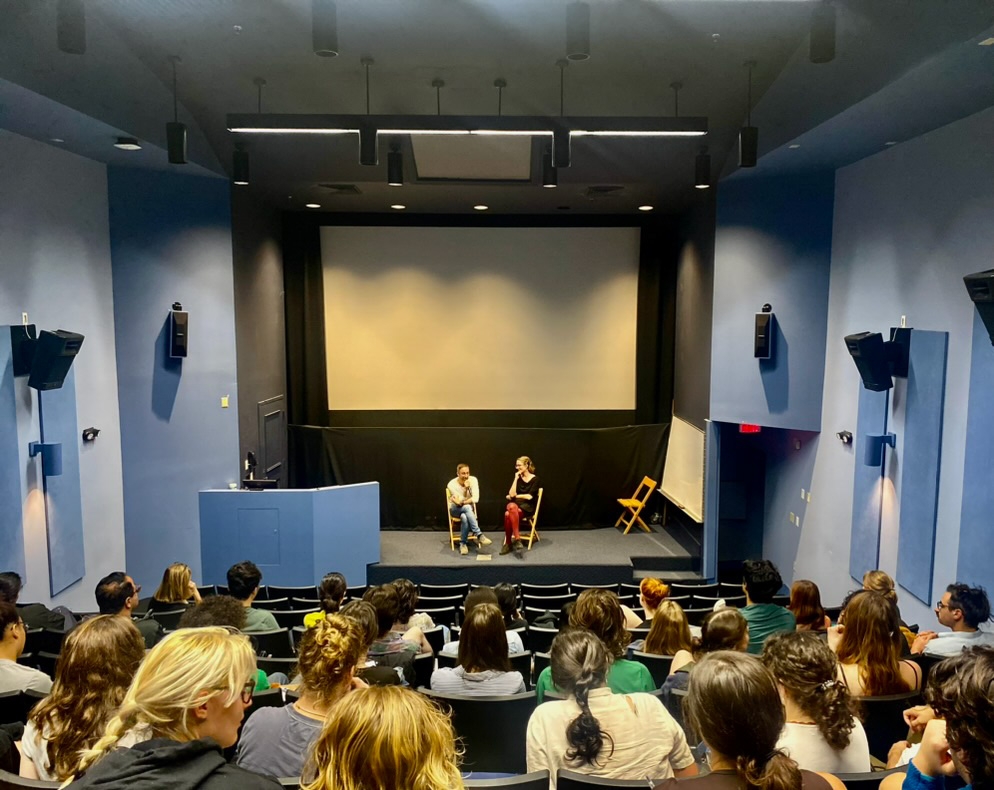
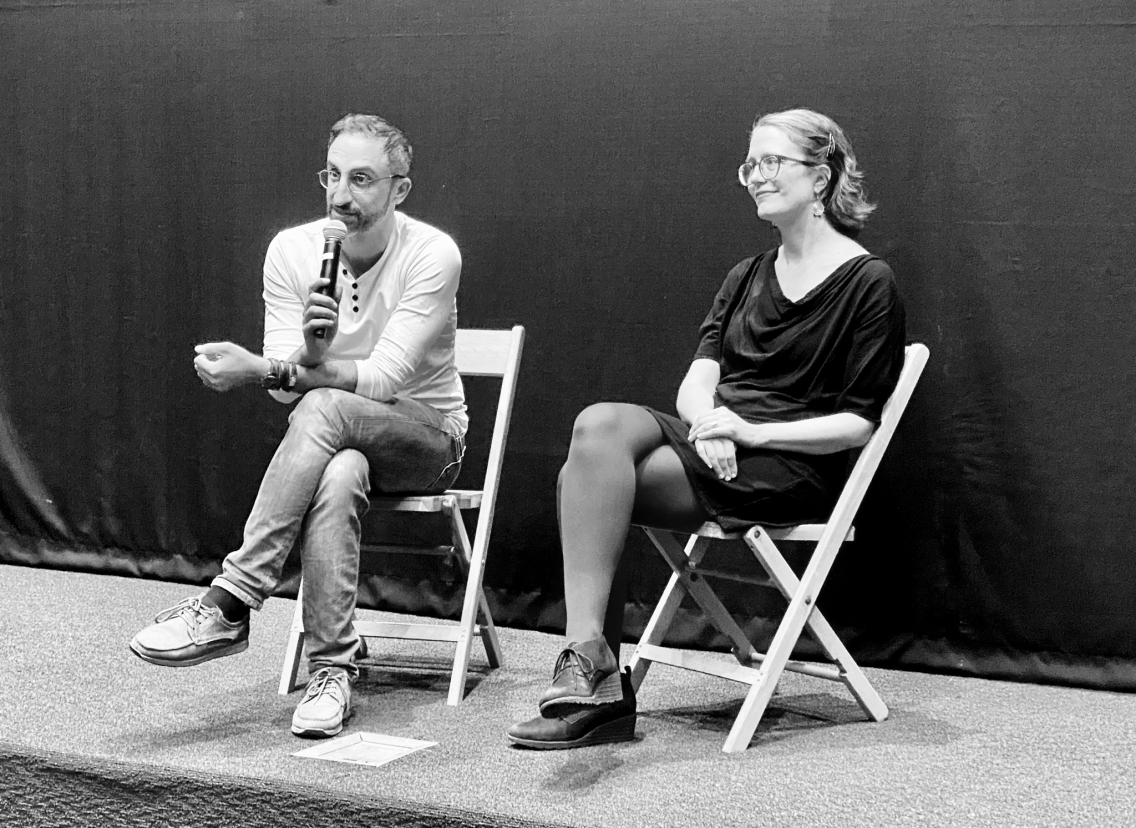
FYSE 1005 Migrations: Politics, Ethics, Literature
First-year students in Professor Stefano Mula’s “Migrations” PHL (First-Year Seminar) have been focusing on the political and ethical issues of migration, particularly in Italy and Europe. They have met with David Herd and Anna Pincus of “Refugee Tales,” as well as James Duff Lyall, the Executive Director of ACLU Vermont. In October 2024, the class hosted Barbara Ofosu Somuah (Middlebury alum, 2013), a translator and Ph.D. candidate in Romance Studies at Duke University, to discuss migration, Blackness, and racism in Italy. Giovanni, a first-year student and POSSE scholar, shared that for him, “I found this seminar the most interesting because a lot of it connects to me and my background…I wanted to delve deeper into where I come from. [Prof. Mula] introduces different perspectives to fuel a conversation in class. I was surprised by Italy and their migration system…it’s definitely teaching me more about the world and different border policies that exist beyond the United States.”

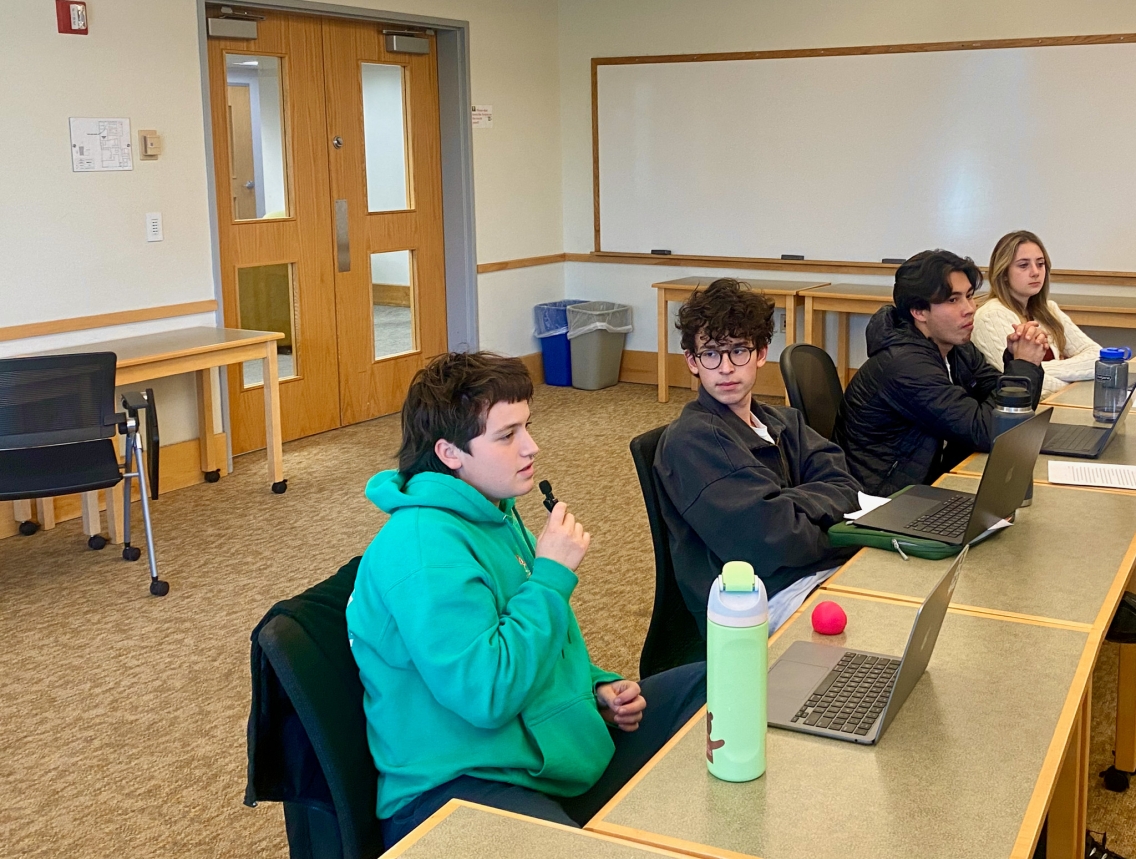
SPAN 0330 Migrant Oral Narratives
In Migrant Oral Narratives, students have the opportunity to sharpen their reading, writing, speaking, and listening proficiency in Spanish through partnerships and mutal aid with community members who organize the culinary collective Viva el Sabor here in Middlebury, VT. Victoria, a junior studying pre-med and minoring in Spanish, described what made this PHL unique from other courses she had taken: “Especially amongst a very educated bubble, a lot of classes [speak about migration] in an abstract manner and we can’t really see what we are learning about …I think that increasing that connection and bridge is integral. I think that you come into school with predetermined notions of certain things…you look at all these numbers [about migration] which can only help fuel certain ideas or stigmas even, and just adding [this] component brings out a universal humanity that I think everyone can share.”
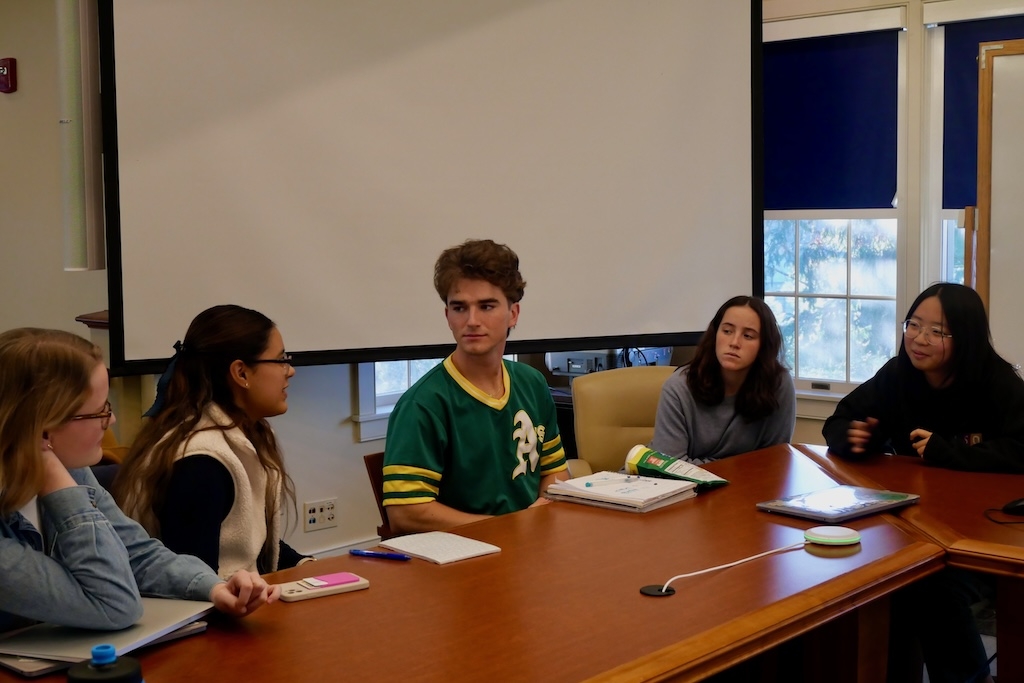
HIST 0440 South Asian Migrations
In South Asian Migrations, students had the opportunity to engage in oral history and conversation with community partners at the Vermont Folklife Center. Bidur Rai, originally from Bhutan and a board member at Vermont Folklife Center, joined the class in conversation alongside Kate Haughey, Director of the the Center. Sharing his life history, Bidur engaged with students on questions of displacement, disability, identity, family, belonging, as well as culture and arts through his work organizing Bhutanese dance and martial arts classes with young people in Vermont. Arjun, a senior studying International and Global Studies with a focus on South Asia, explained why he signed up for this class: “I’ve taken numerous historical or cultural-related courses here at Middlebury but this is the first one where we’re up close and personal with the living histories of individuals from the regions that we are studying. I also think that especially with this course the inclusion of Tibetan and Bhutanese cultures, which are sometimes marginalized in wider South Asian histories, gives life to this…I would recommend that more people take these kinds of courses.”
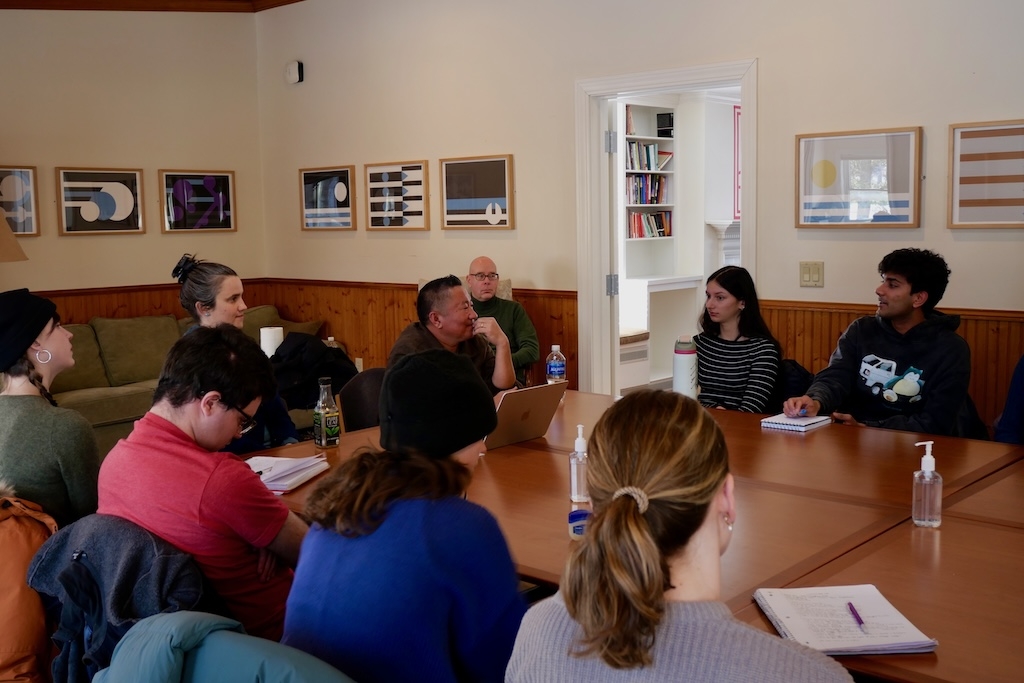
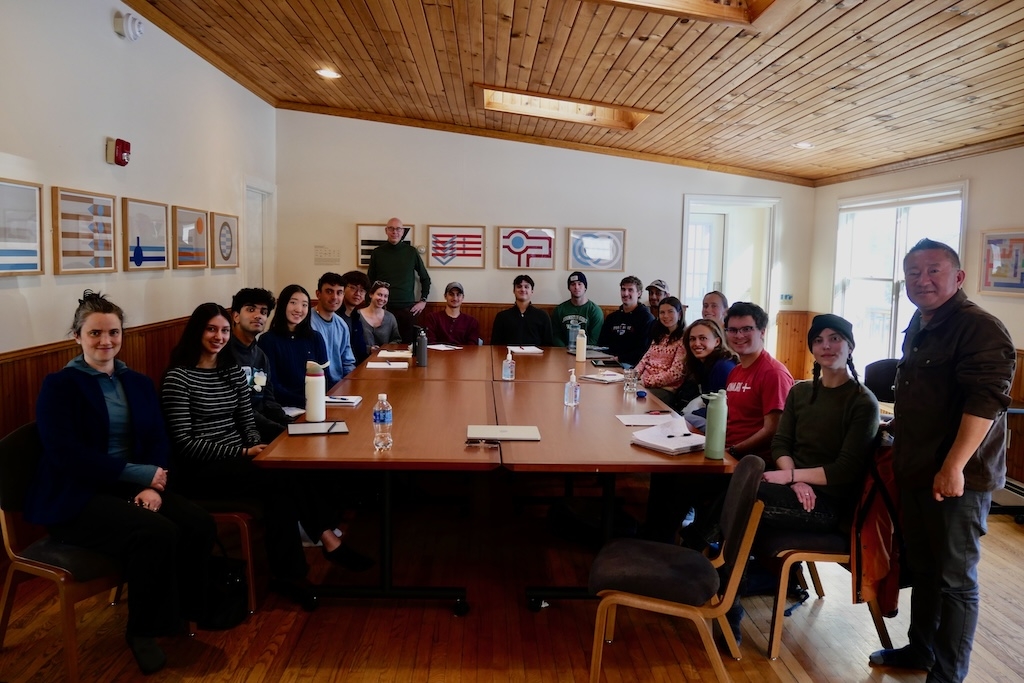
PSCI 0247 Politics of International Migration
Professor Natalie Chwalisz organized a community film screening of the award-winning film “Io Capitano” as part of her course PSCI 0247 Politics of International Migration course.
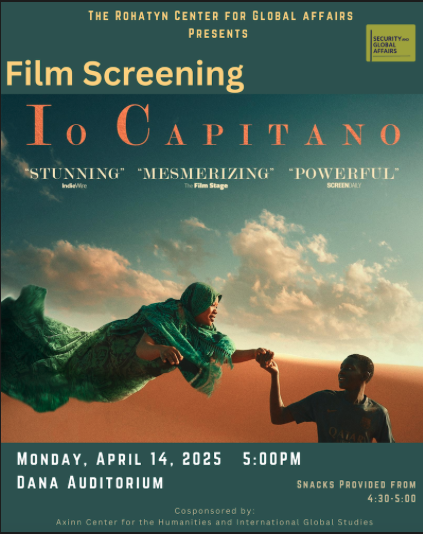
ENGL 0268 Literature of Displacement
In ENGL 0268, comic artist Marek Bennett led a workshop on how to make documentary comics. In addition to helping the class think about how to tell stories through comics, he worked with students to draw and interpret panels.
The class was also visited by Andy Kolovos of Vermont Folklife; he talked about the making of the volume The Most Costly Journey, which he edited, and Susannah McCandless of the Open Door Clinic.
HARC 0368 The Rise & Fall of Detroit
The focus of this PHL was to uncover the many immigrant and migrant communities who built Detroit; students used MapHub to create an interactive map functioned as a repository for student work on sites/structures/neighborhoods that were and are representative of the shifting demographics and economic fortunes of the city. Some of these may be well-known to non-Detroiters, such as markers of gentrification like the Book Cadillac Hotel, Ford Field, or Michigan Central Station, while others signal racial and ethnic demographic shifts (“Black-Bottom” to Lafayette Park, “Corktown” to Greenfield Road, Dearborn to Hamtramck), indicate centers of migration and industry (Highland Park, River Rouge), or racial division and animus (8 Mile Road, 12th Street/Rosa Parks (1967 rebellion) and Belle Isle (1943)). The map ended up functioning a bit like an exhibition; heavily curated and augmented by visuals, wall labels and section texts.
HARC 0368 was fortunate to have Aman Ameri of the Arab American National Museum visit us on Zoom to speak about Dearborn and visited the Sheldon Museum to look at primary source (visual) material dealing with industry, agriculture and migration in Addison County.

